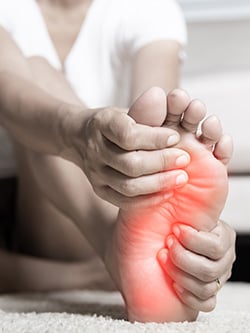Summarize This Article:
Summarize This Article:

While many conditions associated with paralysis are typically considered untreatable, The Institute for Advanced Reconstruction at The Plastic Surgery Center, a New Jersey-based medical practice specializing in innovative nerve reconstruction, today announced several that can be mitigated or eliminated through rare nerve transplants or other surgeries.
“Many times paralyzed people are told that nothing can be done for their condition or related complications, and they must learn to live with immobility and pain,” explains Dr. Andrew Elkwood, a world-renowned plastic, and reconstructive surgeon. “However, the Plastic Surgery Center utilizes nerve-related surgeries and other procedures that enable paralysis patients to live full, active lives.”
1. Paralysis from a stroke. The Institute for Advanced Reconstruction has restored the functionality of stroke patients through procedures including “cross chest brachial plexus negotiation.”
2. Impaired breathing from spinal cord injuries. Phrenic nerve surgery may restore movement of the lungs and diaphragm impaired by spinal cord injuries. The Institute for Advanced Reconstruction’s Dr. Matthew Kaufman, who has performed phrenic nerve transplants, has seen signs of success in helping improve a patient’s breathing.
3. Life-altering pressure sores. Taking nerves from a patient’s paralyzed leg and grafting from the rib to the sciatic nerve, The Institute for Advanced Reconstruction team may relieve and prevent life-altering paraplegic pressure ulcers.
4. Lifetime reliance on feeding tubes to swallow. To restore sensation and movement needed to eat and swallow – often a side effect of stroke patients and acute paraplegia – The Institute for Advanced Reconstruction team transfers nerves from within the neck to the throat to stop reliance on feeding tubes for survival.
5. Neuropathy pain and risk of limb amputation. Dr. Michael Rose of The Institute for Advanced Reconstruction performs a minimally invasive surgical procedure known as triple nerve decompression, which can mitigate pain, restore sensation, and ultimately may reduce the risk of amputation.
6. Arm paralysis as a result of injury or medical problems. The most minimally invasive long-term solution may be to transplant nerves from the patient’s ankle to the damaged nerves to restore the arm’s functionality.
7. Foot drop. Foot drop may be treated by transferring nerves from the leg to the peroneal nerve area – the nerve that communicates to the muscles to lift the foot.
8. Partial facial paralysis. Sensation and movement may be restored in patients suffering from partial facial paralysis by transplanting nerves from the functioning side of the face.
9. Lifelong rehabilitation is the only option for paraplegics. Surgical options coupled with rehabilitation may yield even greater results than rehabilitation alone.
10. Dependence on the splint. To eliminate patients’ dependence on splints to function, The Institute for Advanced Reconstruction uses several different techniques to strengthen muscles and/or replace the permanent use of a splint.
The medical team at The Institute for Advanced Reconstruction is comprised of a group of surgeons who are highly skilled in nerve transplantation and advanced reconstruction. They perform a number of unique operations to help patients suffering from life-altering medical conditions who are often unaware that a treatment is available.
• Paralysis resulting from accidents and strokes
• Diabetic Neuropathy
• Paralyzed diaphragm/ventilator-based breathing
• Facial Reanimation


